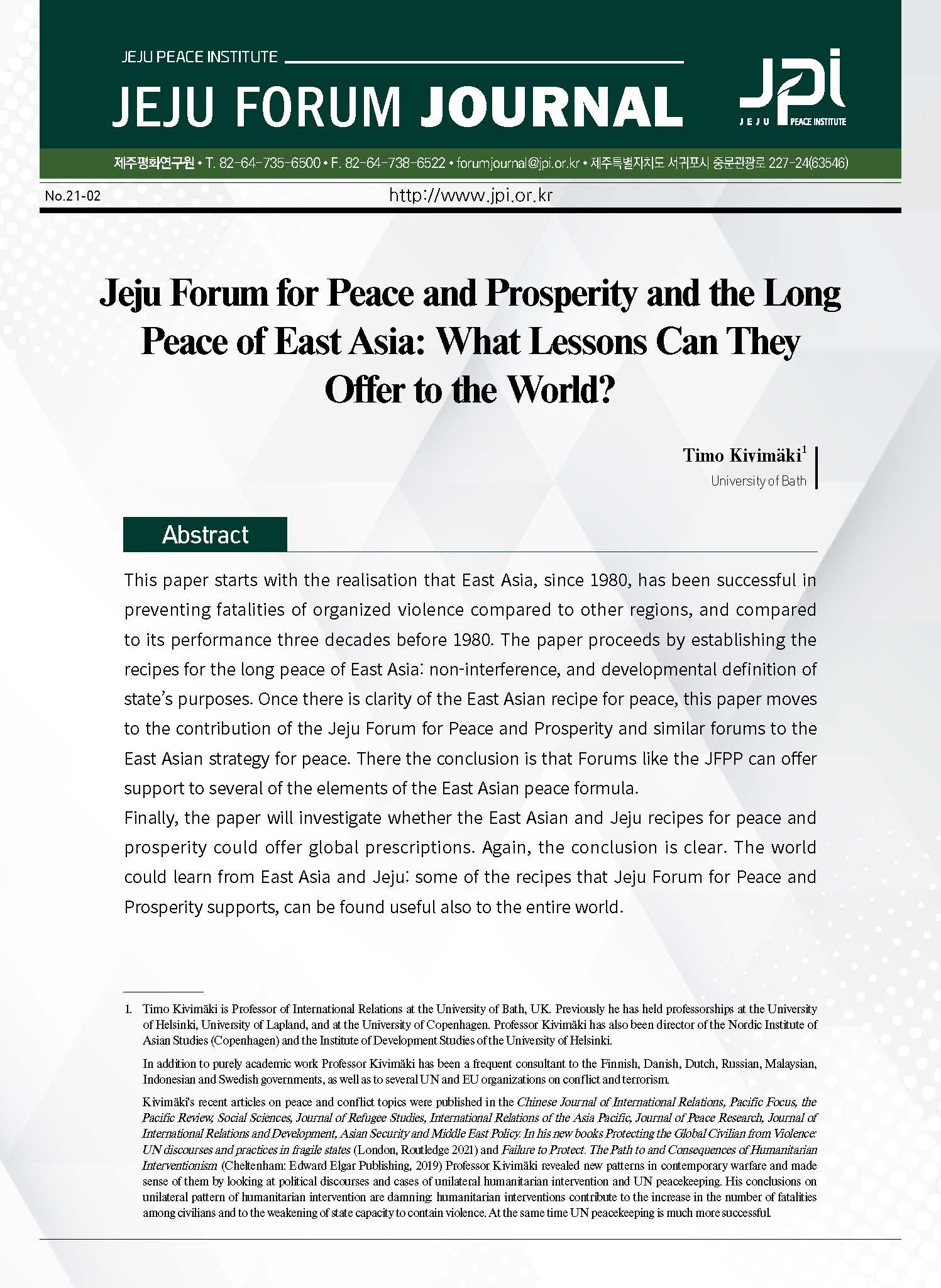This paper starts with the realisation that East Asia, since 1980, has been successful in preventing fatalities of organized violence compared to other regions, and compared to its performance three decades before 1980. The paper proceeds by establishing the recipes for the long peace of East Asia: non-interference, and developmental definition of state’s purposes. Once there is clarity of the East Asian recipe for peace, this paper moves to the contribution of the Jeju Forum for Peace and Prosperity and similar forums to the East Asian strategy for peace. There the conclusion is that Forums like the JFPP can offer support to several of the elements of the East Asian peace formula. Finally, the paper will investigate whether the East Asian and Jeju recipes for peace and prosperity could offer global prescriptions. Again, the conclusion is clear. The world could learn from East Asia and Jeju: some of the recipes that Jeju Forum for Peace and Prosperity supports, can be found useful also to the entire world.
저자
Timo Kivimäki is Professor of International Relations at the University of Bath, UK. Previously he has held professorships at the University of Helsinki, University of Lapland, and at the University of Copenhagen. Professor Kivimäki has also been director of the Nordic Institute of Asian Studies (Copenhagen) and the Institute of Development Studies of the University of Helsinki. In addition to purely academic work Professor Kivimäki has been a frequent consultant to the Finnish, Danish, Dutch, Russian, Malaysian, Indonesian and Swedish governments, as well as to several UN and EU organizations on conflict and terrorism. Kivimäki’s recent articles on peace and conflict topics were published in the Chinese Journal of International Relations, Pacific Focus, the Pacific Review, Social Sciences, Journal of Refugee Studies, International Relations of the Asia Pacific, Journal of Peace Research, Journal of International Relations and Development, Asian Security and Middle East Policy. In his new books Protecting the Global Civilian from Violence: UN discourses and practices in fragile states (London, Routledge 2021) and Failure to Protect. The Path to and Consequences of Humanitarian Interventionism (Cheltenham: Edward Elgar Publishing, 2019) Professor Kivimäki revealed new patterns in contemporary warfare and made sense of them by looking at political discourses and cases of unilateral humanitarian intervention and UN peacekeeping. His conclusions on unilateral pattern of humanitarian intervention are damning: humanitarian interventions contribute to the increase in the number of fatalities among civilians and to the weakening of state capacity to contain violence. At the same time UN peacekeeping is much more successful.
